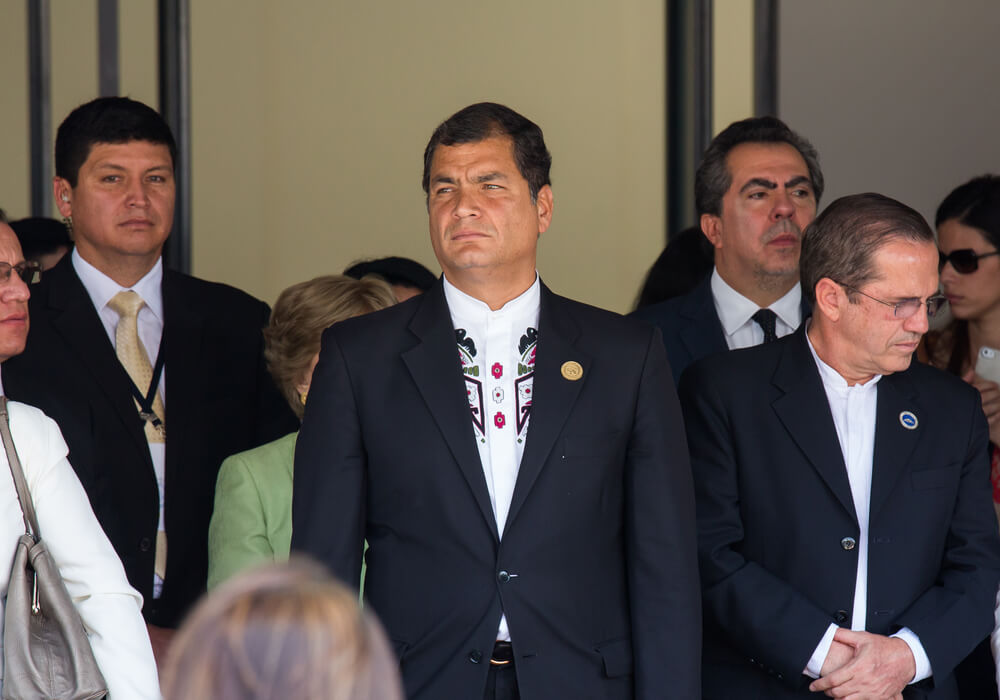The surge in gang-related violence throughout Ecuador was intended to be a blow to Daniel Noboa's presidential administration. He has only been in power for 6 weeks.
A wave of extreme violence swept the country over the weekend. There were riots in prisons, attacks on the streets of major cities, and the takeover of crucial facilities by criminals.
Last Monday, President Noboa declared a state of emergency and deployed security forces, including the army, to crush the armed violence, a move considered mandatory.
However, the new young Ecuadorian leader will have to find a strategy that is more than from textbook if he has the ambition to crush drug crime and its growing strength.
Heir to the richest Ecuadorian, the banana king Alvaro Noboa, a 35-year-old businessman educated in prestigious universities in the US, Daniel Noboa surprisingly succeeded in what his father failed to do 5 times.
Despite having few chances to win, he went on to become president. Since taking the presidential oath at the end of last November, Daniel Noboa has also taken the lead in one of the riskiest missions in the world.
The young Ecuadorian leader inherited the fastest-growing network of cocaine cartels, which in a short time became a challenge even for the state.
A difficult legacy for a young president
Until just a decade ago, Ecuador was an "island" of peace and prosperity in Latin America, positioned between the 2 major cocaine producers - Colombia and Peru.
The peace the Colombian authorities reached in 2016 with the FARC guerrillas was favourable for Colombia but not Ecuador, which overnight became the most significant transit point for Colombian exporters.
Since then, the principal hotspots of violence in Ecuador have been the port cities, through which clans of cocaine transporters run their business, particularly towards the US and Europe.
President Noboa did not put the confrontation with the mafia at the forefront of his programme
President Noboa, a businessman like his father, did not put the confrontation with the mafia at the forefront of his programme. It was only a mandatory part of the campaign since it is a topic that the majority in Ecuador considers a priority for the country.
Noboa tried to impose himself with innovative solutions, for example, by proposing that hardened criminals serve their prison sentences on special ships far from ports, but this seemed more like the improvisation of a young politician than a thought-out strategy.
As a newcomer, his authority in the security forces, as his principal support at the time of escalating violence, had also been questioned.
These structures lost some of their integrity during a decade of spill over of the cocaine transfer business from Colombia to Ecuador. There were cases of using military transports as channels for transporting drugs, and high-ranking army and police officers were arrested for corruption.
Little time for action
President Noboa has a short time frame to combat criminal groups. This is an even greater obstacle. Specifically, he will hold the office for a mere 17 months, fulfilling a portion of the mandate left by his late predecessor, Guillermo Lasso, whose untimely departure from office prompted the need for special elections.
Few are convinced that any leader could deliver a decisive blow to the growing network of criminal cartels in such a short period of time, given that Ecuador systematically, and not overnight, became a significant hub for the global cocaine trade.
 The former populist president Rafael Correa ignored the dangers, and his inaction allowed the growth of local criminal groups
The former populist president Rafael Correa ignored the dangers, and his inaction allowed the growth of local criminal groups
It has good road and port infrastructure, a dollarized economy and a quite liberal visa system for foreigners, making it an almost perfect environment for cocaine barons.
The former populist president Rafael Correa (2007-2017) ignored these dangers, and his inaction allowed the growth of local criminal groups.
He believed that the cocaine trade was not originally a problem of Ecuador but of its biggest markets - America and Europe - whilst a monster had been growing in his yard, which only a year later threatens to take control of the country.
Is the support of citizens enough to win?
The expectations of the majority in Ecuador from the new president are unequivocal. They want to free the country of crime. The drug cartels know this very well, so after a few weeks, they welcomed the new president with fierce violence across the country.
President Noboa has initiated an anti-crime strategy from scratch, similar to all his predecessors, who had left little or nothing that he could use in days of crisis.
"The time is over when drug-trafficking convicts, hit men and organised crime dictate to the government what to do”, said the president in a video message in which he announced the decision to introduce a state of emergency last Monday.
The new president of Ecuador is at the very beginning of his mandate and faces the biggest test of his leadership career
His powerful asset is the significant support of the population for dealing with criminals. However, Mr Noboa's predecessors also had that support, but the result was absent.
The new president of Ecuador is at the very beginning of his mandate and faces the biggest test of his leadership career. He has very little time and many problems with corruption in the top echelons of security to count on the anti-criminal action of the state to bring success.
However, all negative circumstances could also be his unexpected advantage if he manages to mobilise parts of the state apparatus to be uncompromising in the fight against criminal gangs.
Success in this showdown would undoubtedly launch him as the favourite for the new presidential term in 2025, and this is also the capital that President Noboa could invest in his associates and ensure their loyalty.